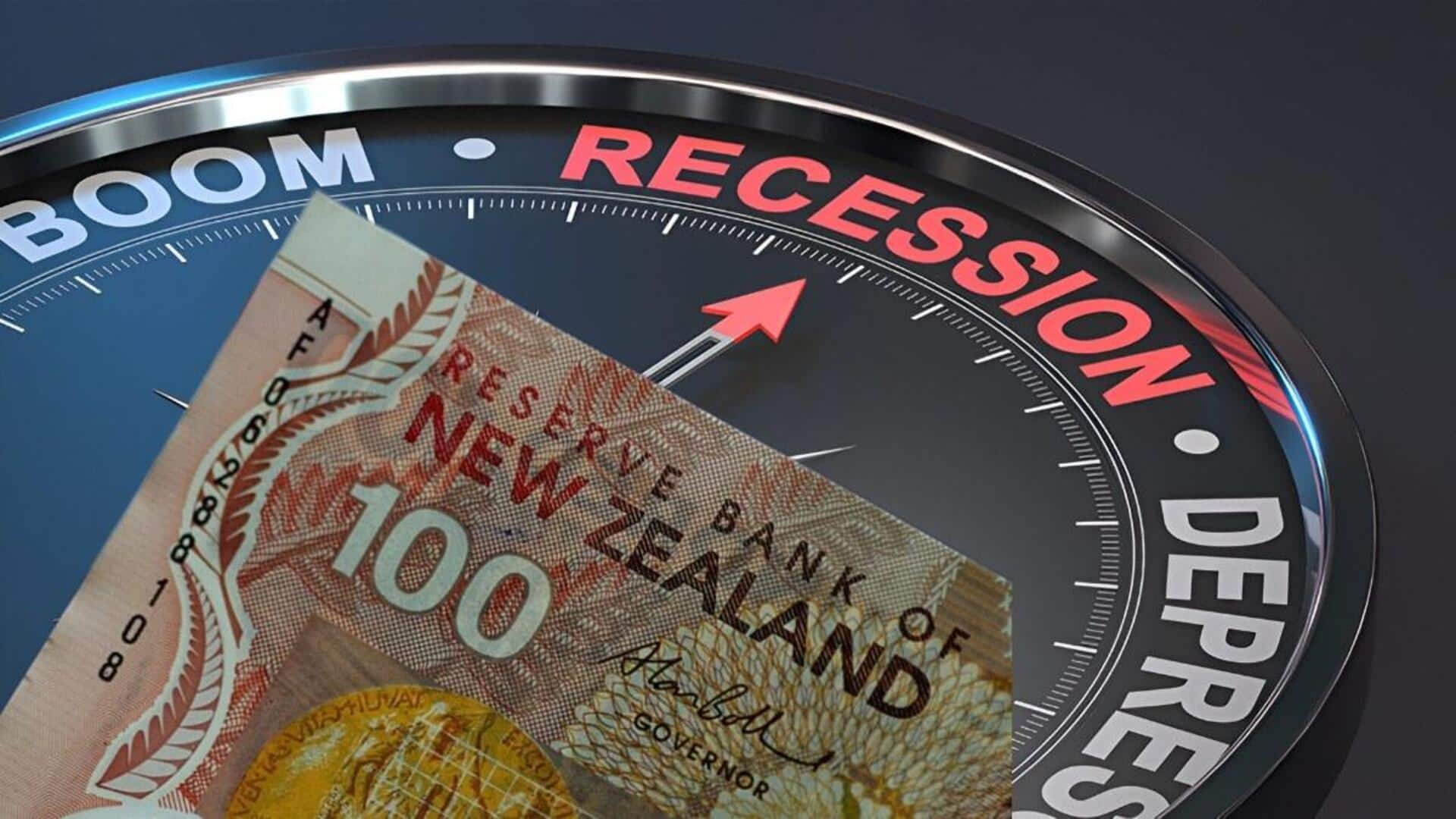
'Worst period since 1991': New Zealand sinks into recession
What's the story
New Zealand is facing its worst economic downturn since the COVID-19 pandemic, with the country's Gross Domestic Product (GDP) unexpectedly plummeting by 1% in the third quarter of 2024. The decline comes after a revised drop of 1.1% in Q2, marking a significant recession for the nation. "Excluding COVID periods, the past six months have been the weakest six-month period since June 1991," said Kiwibank's senior economist Mary Jo Vergara.
Currency depreciation
Economic impact of GDP fall on New Zealand
The surprise GDP drop has also affected the New Zealand dollar, which fell by about a third of a US cent to US56.3c. The worse-than-expected GDP data prompted the fall. In Q3 2024, 11 out of the 16 industries contributing to the production measure of GDP witnessed a decline in activity. The largest falls were seen in manufacturing, business services, and construction sectors. Economists had expected a smaller decline of only 0.4% for Q3, making the 1% drop a surprise.
Sector analysis
Industry performance and GDP per capita
Jason Attewell, Stats NZ's macroeconomic growth spokesperson, noted the biggest drop was in the manufacturing industry. However, some sectors like rental, hiring and real estate services, and agriculture witnessed a rise. "The rise in agriculture this quarter was driven by dairy farming. We also saw a rise in exports of milk powder, butter and cheese," Attewell said. Meanwhile, GDP per capita also fell for the eighth consecutive time by 1.2% in Q3 2024.
Recovery prospects
Future outlook and potential rate cuts
Despite the current economic downturn, some experts remain hopeful about New Zealand's economic recovery. Westpac senior economist Michael Gordon expressed optimism that this could be the worst of the GDP data in this economic cycle. However, others like Abhijit Surya from Capital Economics believe that due to the dire state of the economy, risks are now leaning toward a larger 75-basis-point (bps) Official Cash Rate (OCR) cut in February.